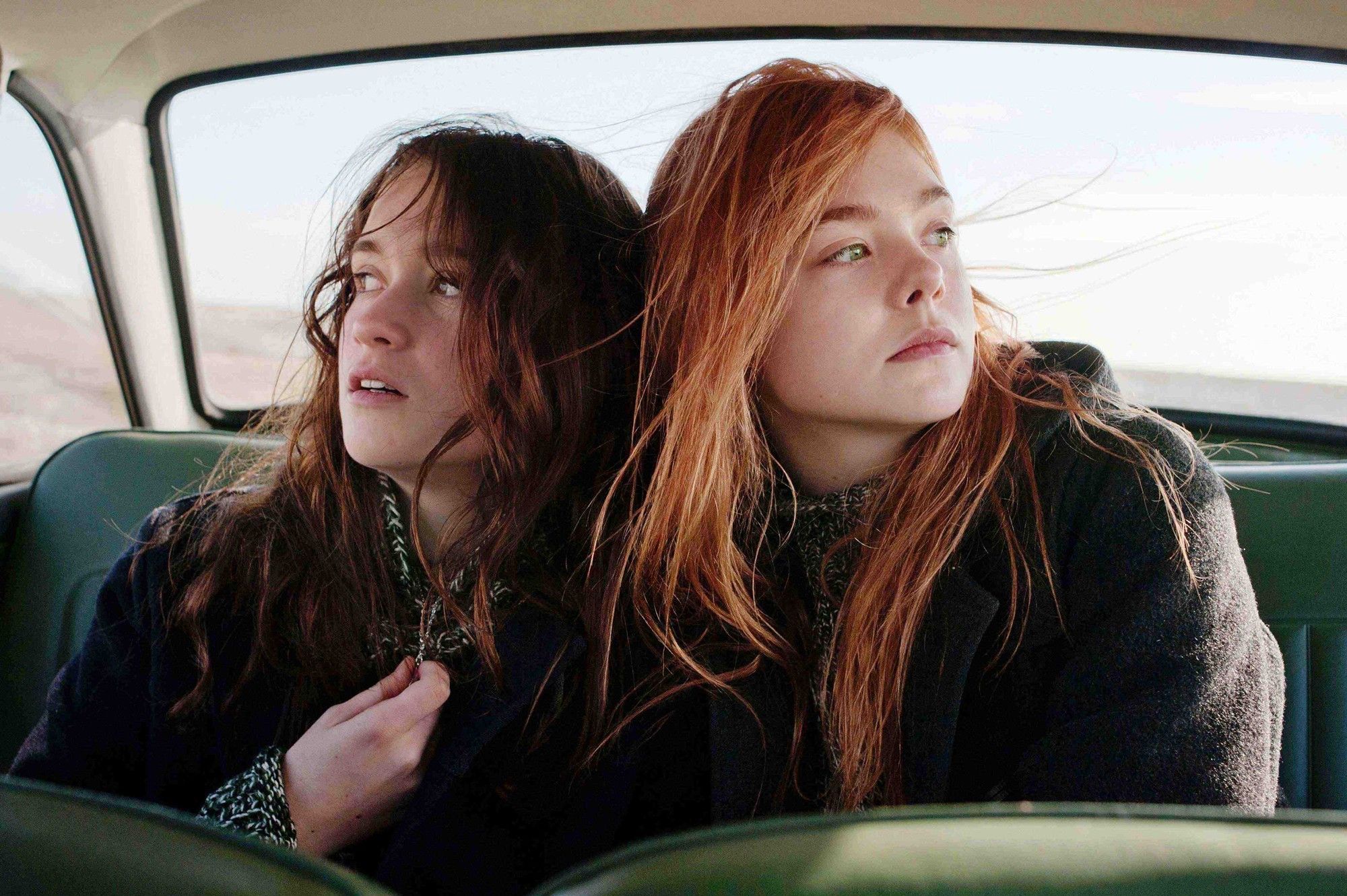- Alice Englert and Elle Fanning in GINGER & ROSA
The title characters in Ginger & Rosa are 17-year-old best friends in 1962 London. Through each stage of childhood, they have been inseparable companions and are now, as teens, fierce allies against their mothers. But at 17, Ginger’s intellectualism and Rosa’s romanticism are becoming more pronounced. Ginger is obsessed with the British nuclear disarmament movement and Rosa is boy crazy. Ginger & Rosa is a solid dramatic snapshot of the moment when this friendship plunges into crisis.
Another important character is Ginger’s unreliable dad (Alessandro Nivola), a political pamphleteer once jailed for his pacifism who justifies his anarchic lifestyle as resistance to authority. This is political statement, conveniently, serves as a rationale for doing whatever he wants to do, whatever the impact upon others.
The truth tellers in the story are the most constant adults in Ginger’s life, gay couple and their arch friend played by Timothy Spall, Oliver Platt and Annette Bening. These three actors are always welcome in a movie, and are outstanding in Ginger & Rosa.
The American actress Elle Fanning is excellent as the always-observant Ginger. Her performance here marks her as someone who could have an extraordinary career. Remarkably, Fanning played this 17-year-old character when she was only 14. The less demanding role of Rosa is well-played by director Sally Potter’s daughter Alice Englert.
Potter gets the period exactly right – from the girls’ ironing their hair to their discovery of turtleneck sweaters. But, along with Fanning’s stellar performance, is that enough for a satisfying movie? At the end of the day, it’s a well-crafted, character-driven little movie – but not a Must See.

